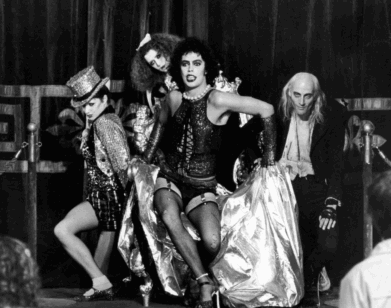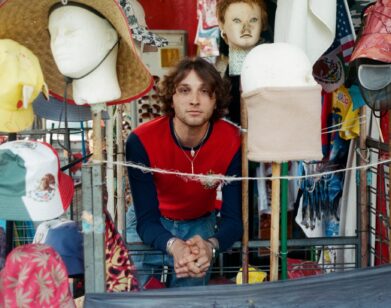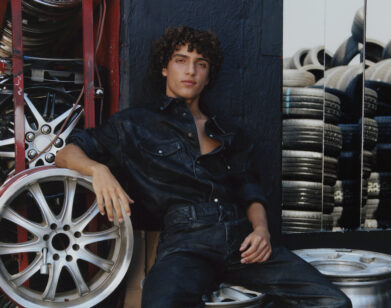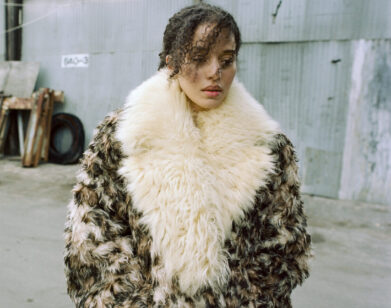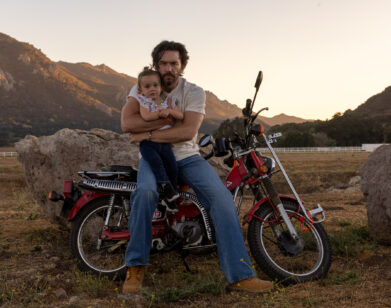Gaspard Ulliel and Bertrand Tavernier on the Making of a Princess
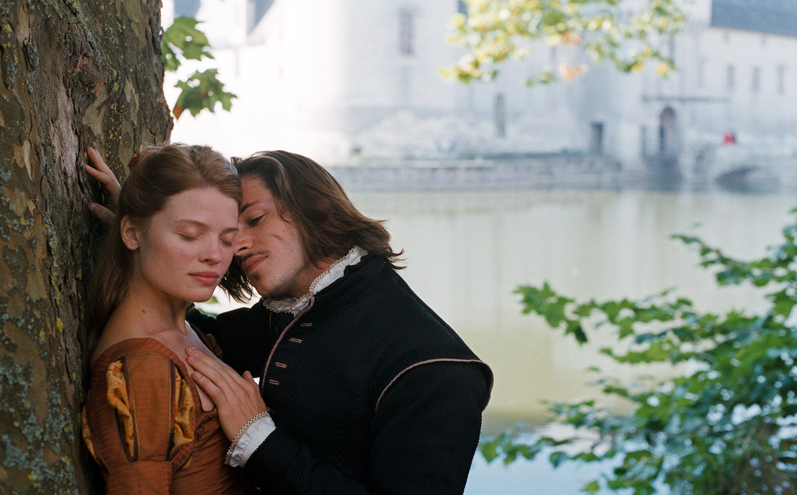
MÉLANIE THIERRY AND GASPARD ULLIEL IN BERTRAND TAVERNIER’S THE PRINCESS OF MONTPENSIER. FILM STILL COURTESY OF IFC FILMS
While most period films hold viewers at a distance, Bertrand Tavernier’s The Princess of Montpensier draws you in. Based on the a classic short story by Madame de La Fayette, the story follows Marie, played by a luminous Mélanie Thierry, as she becomes the titular princess and subsequently the object of affection for most of the French court. Telling a story of young love and lust gone awry, the film manages to avoid feeling like a history lesson. Legendary director Tavernier eschews most of the frills associated with costume dramas in favor of showing a grittier version of 16th-century France in the throes of civil war. Balancing out Thierry’s coquettish princess is Gaspard Ulliel as a devoted but untrustworthy suitor. We caught up with Ulliel and Tavernier to ask about updating history for today’s audience and what to avoid in a costume drama.
GILLIAN MOHNEY: What struck you about the short story when you first read it?
GASPARD ULLIEL: I had read the short story along time ago at school, but I had forgotten it. [When] I read it again I noticed [in] the short story from La Fayette—her style is sometimes quite short, and it can feel a bit stiff—
BERTRAND TAVERNIER: Austere—
ULLIEL: Yeah, and the script was the opposite. I could feel a lot of life and energy and also a lot of pace and rhythm. Also… as an actor, I could read the lines with real pleasure. It was really easy to understand for a contemporary audience and for young actors like us. It was a pleasure to work with that dialogue.
TAVERNIER: I worked with Jean Cosmos, who is a very talented screenwriter, he’s one of those unsung heroes of French cinema… We respected the essence of the short story and the construction of the emotion. But I think we brought the flesh and the blood. Our job was trying to find the roots of the emotion of the short story. Madame de La Fayette just described one fact. I want to understand why that fact happened.
MOHNEY: It’s a much grittier staging than most period films; how did you approach that?
TAVERNIER: A lot of people do a costume drama to show you they’re doing a costume drama. I wanted to forget it. I want to keep the drama—and it happens to be costume, but it’s not what’s important. I’ve [always remembered] a line by one of the actors who worked on my second film, it was a historical film set in 1750. He said “You are doing the film like the camera had just been invented.” That’s the idea—let’s do a period film like the camera had just been invented. When the Lumière brothers were shooting, they did things they did not know were going to become historic. They were shooting what they were seeing… I would shoot the moment of love or passion as if it was just happening—those characters don’t know they’re a part of history. They are just living. In many films, people do the opposite. People want to remind you that they did all their homework. The set piece and the furniture is right… The important thing is that all the actors must feel like it’s normal, it’s casual—it’s something they do every day. Not something that will be part of a museum later on.
MOHNEY: The characters in the film are these historical figures, but they’re also barely out of their teens, and it gives the film a youthful presence. How did that affect the filming?
ULLIEL: Well, for me, it was great, because I got the chance to act with a lot of actors my age. That’s not always the case for me, because I started quite young working in this industry, and most of the time I was working with much older people. It was really nice to be with all those young actors… Most of the characters in the film really existed, and at that time, they were even younger than we are now. It’s crazy if you think about it, because the king was only 20 years old, or he was the head of the army at 17.
TAVERNIER: Age 17 in the 17th century isn’t the 17 of today. A historian will say, add four or five years to the age of the period, because they were so young when they were confronted with reality. The Duke was in the army since the age of 14… One great thing in the film is that you had all these actors of the same generation and the same age, and they loved working together. It was like a family. Every night they were having dinner together—that paid off in the film. You can see they were getting along. There is so much that can be added by creating that spirit. And Mélanie worked very, very well with Gaspard and Lambert and Grégoire. Both Mélanie and Lambert were connected. It was like seeing two soloists working on a piece of music and creating their own rhythm and beat. I love that. I had several moments when I was really moved by all of them.
MOHNEY: She was so great in the film—what made you want to cast her? She’s the only female presence in the film.
TAVERNIER: Yes—yes, and surrounded by a bunch of very sexy men. She was very happy. [laughs]
ULLIEL: She was the center of attention.
TAVERNIER: She was cast in the most classical way, in a series of tests. But—I remember the first test with her was not completely successful, because she arrived late, and her story about why she was late—no one believed, but it was true!
ULLIEL: Apparently she got [a ticket] while in the back of a cab because she wasn’t wearing a seat belt.
TAVERNIER: She did many tests. But right from the beginning, my wife was absolutely passionate about her.”‘She’s the best!” She has the exact beauty of the time. The forehead, the eyes, the color of the skin, and she has an intensity—when she got the right mood, she was totally unique. Nobody was like her. I will never forget when I picked her. I spoke with an actress who was on the stage with her and I said, “Monique, I’ve chosen Mélanie.” And she said “Bertrand, you could not have picked a better choice. She’s like a Stradivarius. She will give you everything you want.”
MOHNEY: Gaspard, you were playing an historical figure—is it helpful to have his back story, or intimidating to play a real figure?
ULLIEL: No, it’s great. I think it’s great. When you work on a contemporary role, you have to mostly create it and sometimes you can feel a bit lost. Here, it’s like you have all this food to feed yourself and create the character. Working with a historical character is great because you have all these readings you can do to get information on this man. Also, I was so thrilled to be able to discover this part of French history and to understand how they lived their daily lives. In working with Bertrand, it was great, because this is one of his great passions. He would work with a great historian, and then he would give the actors really precise references.
TAVERNIER: Nothing abstract! Fact! How you would wash or don’t wash. An actor doesn’t have to know the date of a treaty—
ULLIEL: Yeah, casual facts.
TAVERNIER: He has to know that during a duel at that time there was no code. You could do anything. You could bite. You could kill. You could be ruthless.
ULLIEL: Most of the work actors do, he would do it for us. He would come with all the information you need.
TAVERNIER: History isn’t just dates and battles—it’s made of flesh and blood.
THE PRINCESS OF MONTPENSIER IS OUT TODAY IN LIMITED RELEASE.


